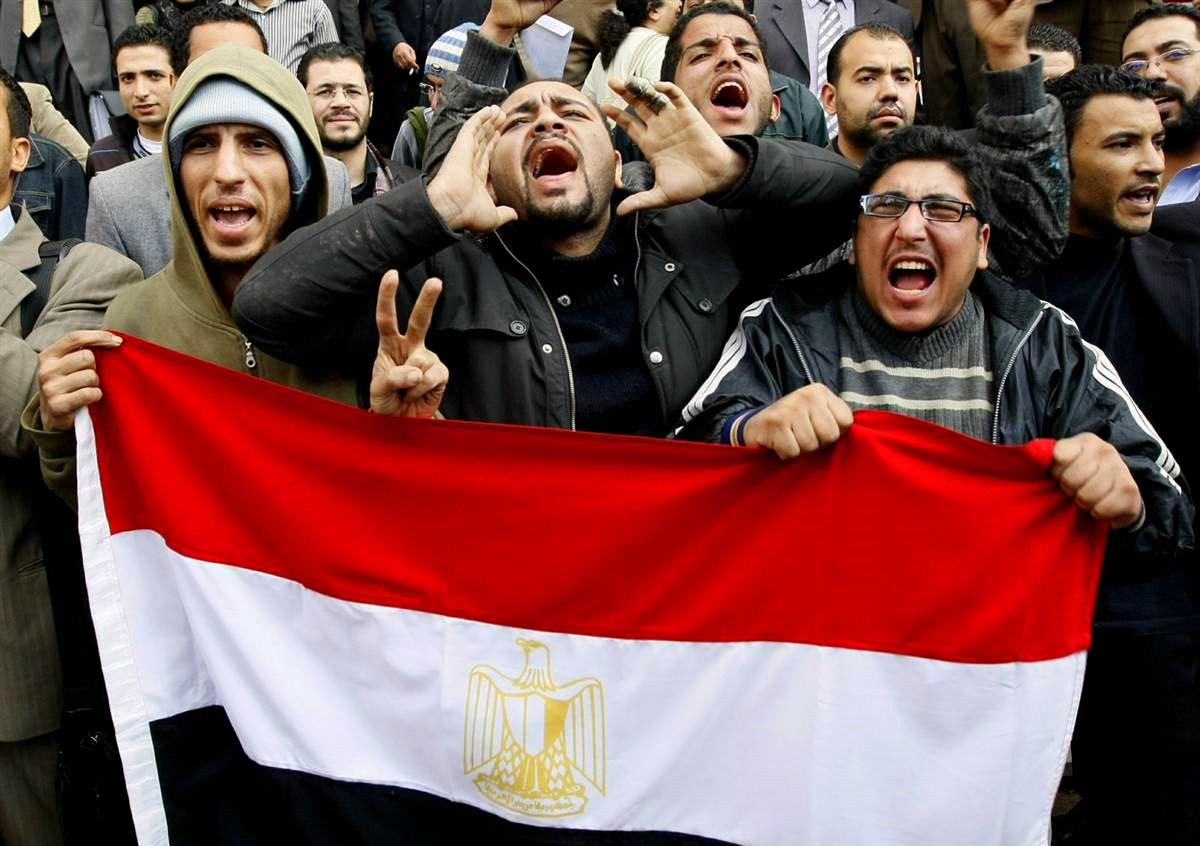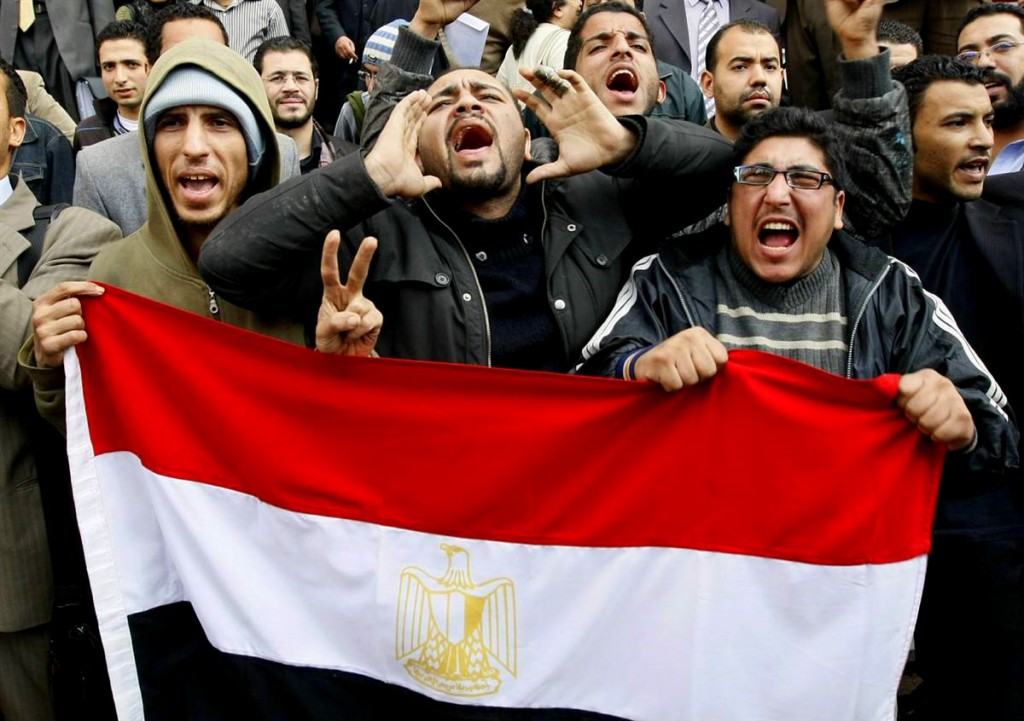

Egypt’s president, Hosni Mubarak, was faced with large crowds of protesters on the streets of Cairo, Alexandria and Suez on Tuesday, Jan. 25.
After weeks of unrest and calls for a revolution on Facebook, the people of Egypt started the first revolution the country has seen, and rapidly took to the streets, calling for Mubarak to step down as president after holding the title for 29 years.
“I’m excited about it, and I’m very proud,” said Reem Khedr, a fourth-year international student from the American University in Cairo who came to study journalism at SUNY New Paltz on Jan. 19, less than a week before the revolution began. “I have never seen anything like it.”
The people of Egypt have had to deal with many setbacks that began shortly after the protests.
Since nearly 40-million Egyptians took to the streets, the Egyptian government took away the ability to access social networking sites like Facebook and Twitter, which left many citizens enraged and brought the revolution to national attention, thus urging political commentators from all over the world to give their assessments of the issue. The United States in particular, has had many people asking why its people should care.
“Why should people care? Oh my goodness, there are so many reasons,” said Professor Lewis Brownstein of the political science department. “First off, Egypt is the center of the Arab world, and it makes up two thirds of all Arabs. It’s a country that has a history that goes back 5,000 years…It is the first country to have signed a peace treaty with Israel, it controls the Professor Lewis Brownstein, it is an inspiration or an influence at least in the Arab world. The United States has invested billions of dollars since their peace treaty with Israel and we have very close ties to the regime.”
While the revolution in Egypt has inspired hope amongst many, it has also left many with anxiety, uncertainty and a constant fear that they may never see loved ones again.
“Unfortunately, the situation is that my family is hiding out in places that aren’t their own homes and if they need groceries they can’t leave the house. If they leave, they’ll definitely be captured.” said Annmarie Arsanious, an undeclared first-year student who has family in Egypt.
While the outcries for Mubarak to step down are mainly geared towards political anger, Arsanious said the religious aspect is important as well.
“What the news doesn’t tell you is that [Hosni Mubarak is] actually saving all of the Christians who live in Egypt. The only thing the news is telling you is the political aspect, but people should also look at how Mubarak has also protected the Christians for so long,” said Arsanious.
Additionally, there is the televised idea that if Mubarak were to refuse stepping down, he would be taken out by force by the Muslim Brotherhood (which is and has been a large presence in Egypt) who could take over, resulting in Israel being completely surrounded by enemies, which according to Brownstein is “entirely too speculative.”
“We don’t know what’s going to happen tomorrow, much less what’s going to happen down the road,” said Brownstein. “If I were forced to the wall on this question, I would doubt very much that Egypt could become a Sudan or an Iran for example. It just doesn’t have the same traditions and it is not the same kind of society.”
Khedr agrees and said he does not think it will ever happen.
“…Egyptians are now very aware of what’s happening, and I don’t think they will let an Islamist regime come into power. I think it’s an over-exaggeration,” Khedr said.
